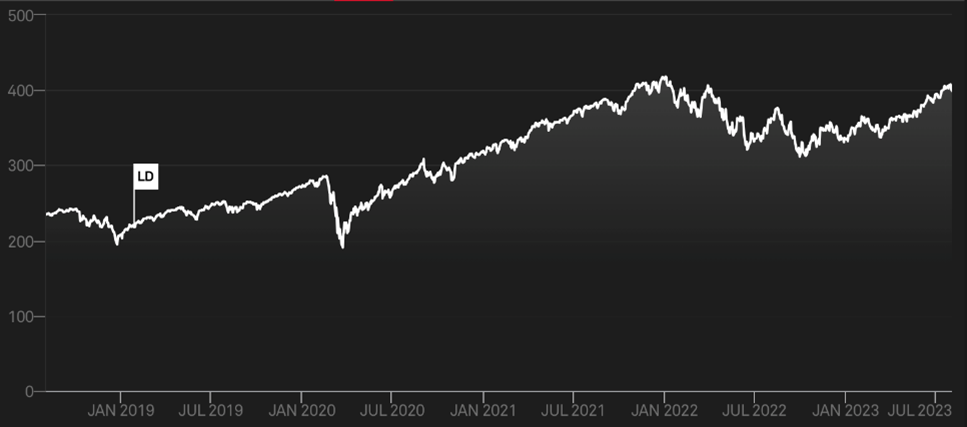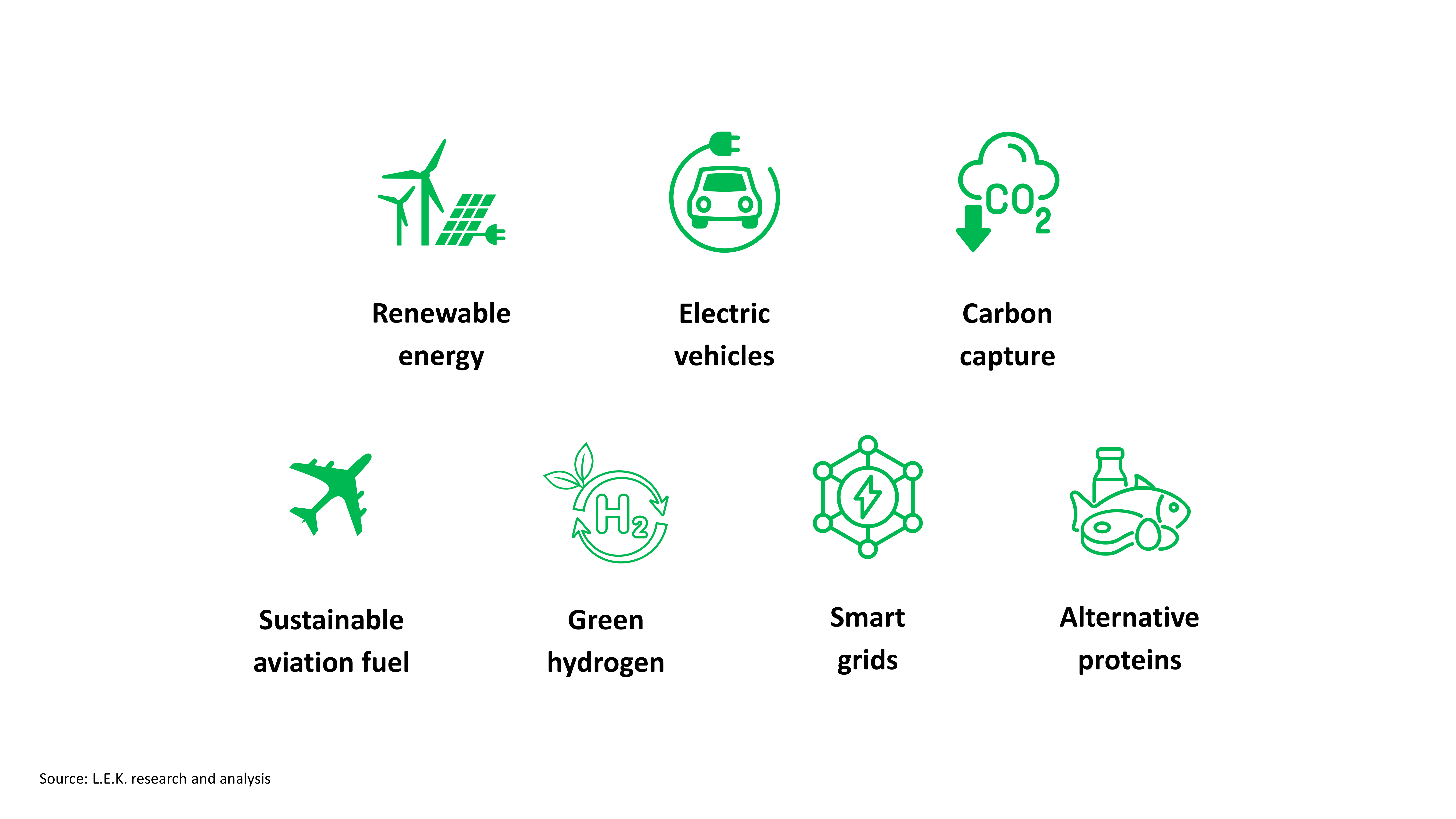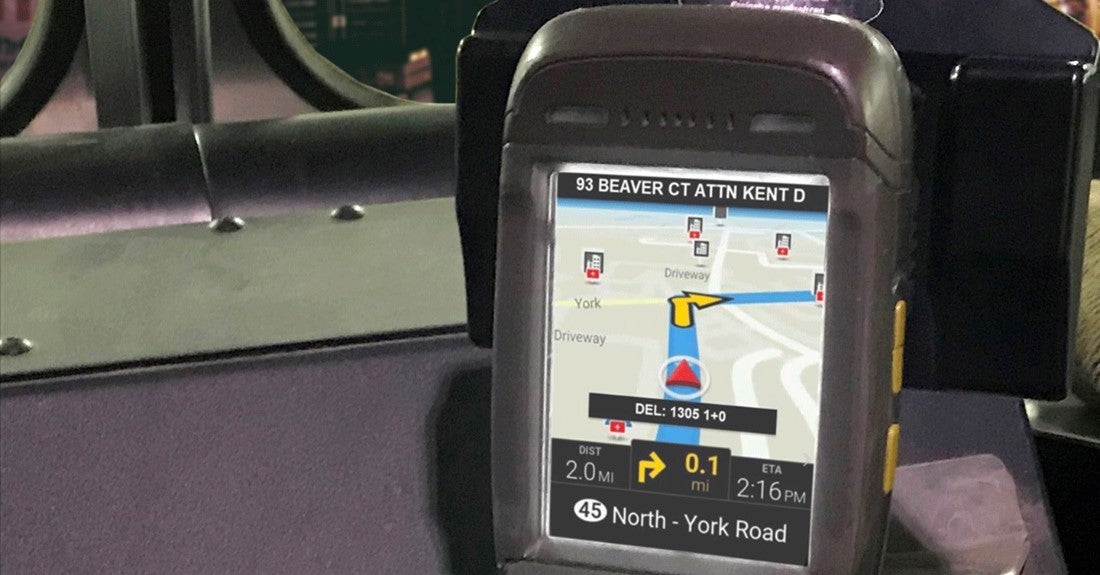The world is in a period of extraordinary transformation. With the increasing prominence of environmental concerns, the importance of sustainability in business has never been more apparent. Technology presents a feasible solution, enabling the harmonization of economic advancement with our environmental obligations.
Consumer and regulatory expectations are driving an irreversible shift toward sustainable practices in the business world. More than a passing trend, this shift is an essential adaptation that will allow companies to maintain their competitive edge. Adopting sustainable technology presents an opportunity to unlock long-term benefits, from cost savings through resource efficiency to an enhanced brand image that boosts customer loyalty.
Companies that prioritize sustainability often see tangible financial incentives for committing to environmentally conscious practices (see Figure 1).
Figure 1: S&P 500 ESG Index (SPXESUP) share price

Source: SP Global
The role of technology in driving sustainability
Technology is the key enabler in companies’ transitions toward more sustainable practices. By leveraging innovative technologies, businesses can reduce their environmental impact, increase resource efficiency and create products and services that meet the growing consumer demand for sustainability (see Figure 2).
Figure 2: Key sustainability and technology interactions

Let’s jump into some of the technologies that are enabling companies to achieve their sustainability goals.
- Renewable energy: Renewable energy technologies are an increasingly viable and cost-effective alternative to fossil fuels. Advances in energy storage, such as battery technology, are overcoming the issue of intermittency and enhancing the feasibility of renewable energy.
- Electric vehicles: Electric vehicles (EVs) offer a viable way to reduce carbon emissions and noise pollution in cities. As battery technology and charging infrastructure improve, EVs will become even more accessible to consumers.
- Carbon capture: Carbon capture technologies trap and store carbon dioxide emissions, preventing them from contributing to global warming. This technology could be instrumental in reducing the greenhouse gas emissions of industries that are currently hard to decarbonize.
- Sustainable aviation fuel: Sustainable aviation fuel is a cleaner-burning fuel alternative that could significantly reduce the aviation industry’s carbon footprint.
- Green hydrogen: Green hydrogen, produced by electrolysis powered by renewable energy, offers a carbon-free fuel option that could transform various sectors, including transportation and manufacturing.
- Smart grids: Smart grids use data and Internet of Things technology to optimize the production and distribution of electricity, increasing energy efficiency and allowing a higher penetration of renewable energy.
- Alternative proteins: Technology is facilitating the development of alternative proteins, such as plant-based and cultured meat, that can reduce the environmental footprint of food production and meet changing consumer dietary preferences.
The impact of sustainability technologies on enterprises
Enterprises across various sectors can leverage these technologies to enhance their sustainability and technology integration and deliver solutions that align with consumer and regulatory expectations. Whether it’s a food company investing in alternative proteins or a logistics provider transitioning to EVs, technology can be a catalyst for sustainable transformation.
One compelling illustration of sustainable technology integration within a business model can be seen in the logistics sector (see Figure 3).
Figure 3: ORION continuous delivery route optimization

Source: UPS ORION System
The UPS ORION (on-road integrated optimization and navigation) system employs advanced algorithms to fine-tune delivery routes for drivers. By methodically reducing the distance traveled and consequently the fuel consumed, ORION has dramatically lowered UPS’s carbon emissions. This not only displays the company’s dedication to technical sustainability but also results in substantial savings on fuel expenditures, demonstrating that environmental responsibility and cost-efficiency can go hand in hand.
Aligning business strategies with technology in sustainability
Sustainability is no longer an optional extra but a necessary adaptation in a changing business landscape. Technological advancements and innovative technologies are providing unprecedented opportunities for enterprises to embark on this transformation. Leveraging these technologies will not only meet growing consumer and regulatory demands but also drive innovation and unlock new opportunities.
Enterprises must align their business strategies with technology in sustainability. They can start by understanding their environmental impact, setting measurable sustainability goals and then leveraging the right technologies to achieve those goals. By doing so, businesses can ensure their long-term viability while contributing to a sustainable future.
